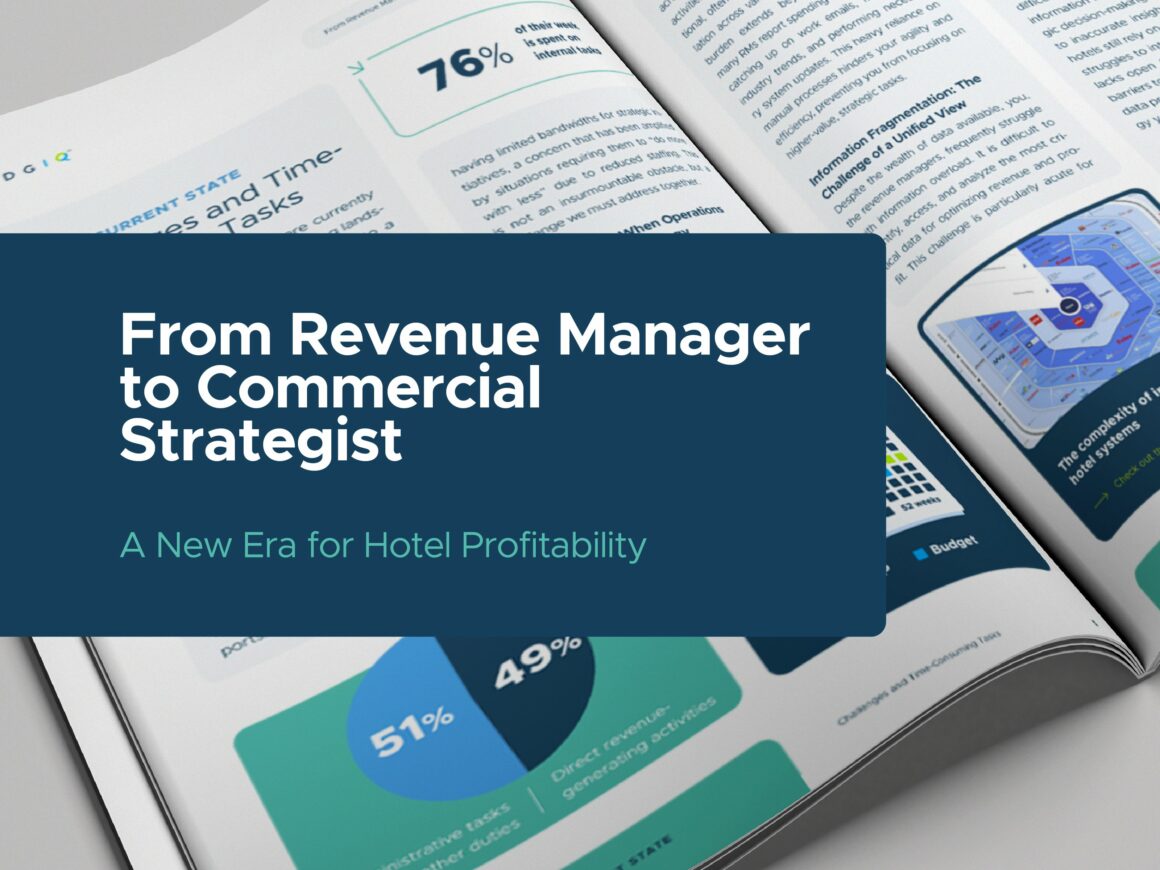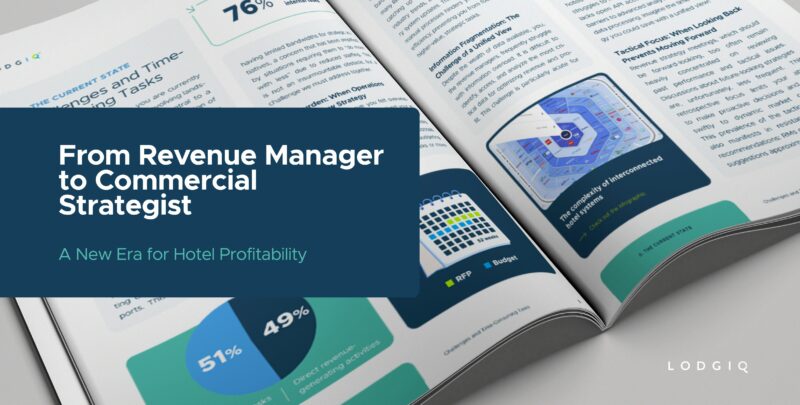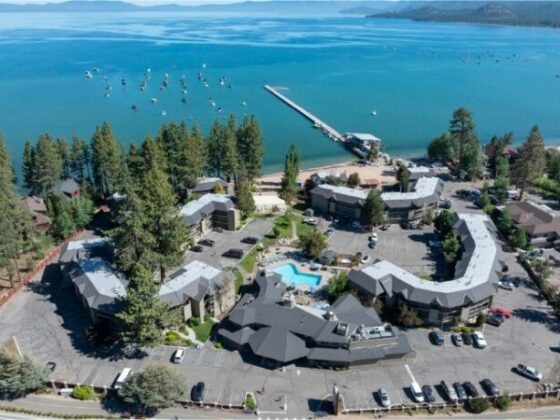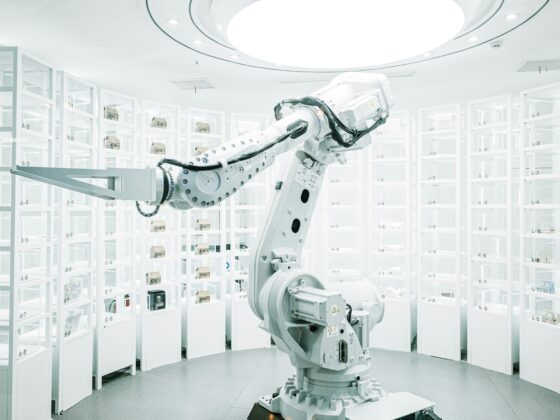Author: Samuel Johnson, Director of Operations & Customer Success @LodgIQ
The hospitality world has entered a new chapter where revenue leaders are no longer solely technicians but are becoming the drivers of total profitability.

The Turning Point
What if I told you that the era of focusing only on room rates is over?
If you’re managing a hotel today, you already feel it. Those rules of revenue management that were once centered on daily pricing tactics and occupancy targets can no longer guarantee success. After years of volatility, unpredictable demand, and new booking behaviors, hotels can’t rely solely on RevPAR to measure performance.
I’ve spoken with countless revenue managers and hotel leaders who feel the same frustration: too much data, too many systems, not enough time to think strategically. You’re expected to optimize everything, from — rooms, F&B, distribution, costs — while juggling reports and forecasts that seem to multiply by the week.
This article is based on insights from a broader research effort compiled in From Revenue Manager to Commercial Strategist: A Hospitality Guide. The guide is a manifesto for the new generation of revenue professionals ready to move beyond tactical pricing toward total commercial leadership. In this article, I’ll show you what that shift looks like and why it’s the key to unlocking sustainable profitability for your hotel.
The Evolution of Revenue Management: From Tactics to Strategy
The story of revenue management has always been one of evolution. It began as yield management, a tactical science borrowed from airlines to sell the right room at the right price, at the right time. Over time, it expanded into total revenue management, where we began optimizing not only rooms but also F&B, spa, parking, and meeting spaces.
But what is really transforming hospitality today is the move toward profit management. It’s no longer about maximizing revenue per room night; it’s about understanding every cost, every margin, and every opportunity that contributes to the bottom line.
As Nicole Young of Rosewood Hotel Group said, “Revenue optimization is the seed for many new trends.” And she’s right since that seed has now grown into a full ecosystem where data, technology, and human insight must work in harmony.
Here’s the difference I see every day:
Old Paradigm | New Paradigm |
Focus on room pricing | Focus on total profitability |
Tactical forecasting | Strategic scenario planning |
Siloed operations | Cross-functional collaboration |
Manual reporting | AI-driven intelligence |
In short: revenue management has matured. The future belongs to those who can connect the dots, see beyond RevPAR and understand the full commercial picture.
Want to learn more? Read From Revenue Manager to Commercial Strategist — A Hospitality Guide
The Rise of the Commercial Strategist
This evolution has given birth to a new kind of leader: the commercial strategist.
A commercial strategist doesn’t just manage rates. Instead, they shape the business model. They think like owners, aligning every department around one shared goal: profitability.
Let me give you an example. Imagine your revenue team detects a surge in weekend flight arrivals due to an upcoming event. A traditional revenue manager might adjust rates reactively once demand appears in the booking window. A commercial strategist, on the other hand, uses predictive analytics to spot that signal early. They coordinate with marketing to launch targeted offers, with operations to ensure service readiness, and with finance to forecast the real profit impact.
That’s the difference between managing demand and creating it.
The commercial strategist understands that pricing is just one lever in a much larger system. Marketing, distribution, operations, and finance are no longer separate lanes; they’re interconnected channels of profitability.
And this shift requires a mindset change, from reactive to proactive, from tactical to strategic. It’s about leading cross-department collaboration, interpreting data in context, and making decisions not just for tomorrow’s revenue, but for long-term health and brand positioning.
I always insist on one thing: commercial strategists aren’t defined by their tools, but by their perspective. The tools just help us get there faster.

Technology as the Enabler of Transformation
Of course, tools matter, and they’re changing faster than ever.
The biggest paradox in our industry today is this: 76% of a revenue manager’s week is spent on internal, non-revenue-generating tasks. Reporting, manual data compilation, RFPs, budgeting… all of it drains the time and energy we should be spending on strategy.
AI, Business Intelligence (BI), and cloud-based systems are here to solve exactly that. They free you from the grind so you can focus on the bigger picture.
Modern AI-powered Revenue Management Systems can automatically update pricing, forecast demand with more precision, and even analyze competitor behavior in real time. Business Intelligence platforms unify data from PMS, CRS, CRM, and accounting systems into one consistent source of truth, thus eliminating the guesswork and manual reconciliation I have seen that slow teams down.
I have seen how transformative this can be. By integrating AI and BI into daily operations, revenue teams gain back hours of strategic thinking time each week. Instead of “being constrained in a system,” you’re using the system’s intelligence to make faster, more confident decisions.
The result? Less firefighting. More forecasting. Less time crunching numbers. More time designing strategy.
When you combine automation with human creativity, you get the perfect equation for growth.
Want to learn more? Read From Revenue Manager to Commercial Strategist — A Hospitality Guide
A New Era for Hotel Profitability
So, what does profitability really mean in 2025?
It’s no longer a metric confined to rooms or rates. It’s the sum of every guest touchpoint, every upsell opportunity, every operational efficiency. Profitability today is holistic. It’s about total contribution per guest, not just revenue per room.
In the most successful hotels I’ve seen, departments no longer compete for resources; they collaborate for shared results. Marketing generates smarter demand, operations deliver consistent value, finance tracks true ROI, and technology ensures decisions are made on reliable, real-time data.
This is what I call the commercial ecosystem where every function supports the same goal: sustainable profitability.
For you, as a hotel manager, that means leading differently. It means empowering your team to experiment, to use data creatively, and to challenge old assumptions. It means rewarding long-term value, not just short-term yield.
The most forward-thinking hotels are already embracing this shift. They’re not asking, “How can I fill my rooms?” They’re asking, “How can I optimize every asset of my property for maximum impact and guest satisfaction?”
That’s what the next era of revenue leadership looks like: integrated, intelligent, and profoundly human.
The Call to Lead
You can stay a revenue manager, or you can become a commercial strategist.
The difference isn’t in your job title, it’s rather in how you see your role. Do you want to keep reacting to data, or do you want to lead the strategy that defines it?
As I see it, this is the moment for every hotel leader to step up. The hospitality industry doesn’t need more analysts; it needs visionaries who can connect insight to impact.
We may say that the future belongs to those who can merge data, technology, and human understanding into one cohesive approach.
📘 Redefine your approach to profitability
Download From Revenue Manager to Commercial Strategist — A Hospitality Guide









